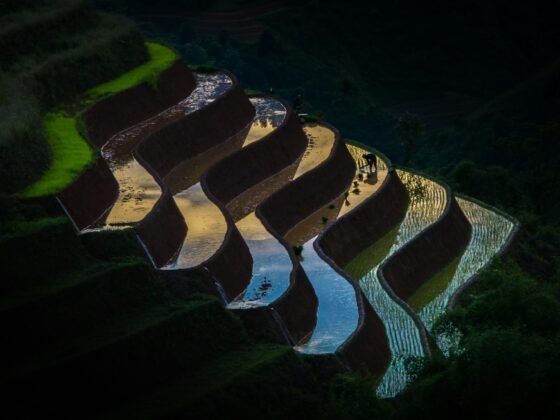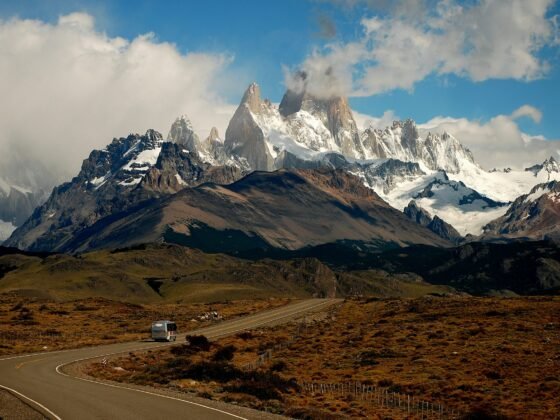Backpacking through Japan is an experience like no other, blending the adventure of exploring diverse landscapes with the discovery of rich cultural traditions. Japan’s unique combination of ultra-modern cities and ancient temples makes it a dream destination for travelers seeking both excitement and serenity. This guide will delve into the specific nuances of backpacking in Japan, offering detailed tips on how to make the most of your journey without breaking the bank.
Choosing Your Backpacking Route: Urban Adventures and Rural Escapes
When planning your backpacking route in Japan, the contrast between bustling cities and tranquil countryside offers endless possibilities. Start your journey in Tokyo, where you can experience the city’s fast-paced energy, explore neon-lit districts like Shibuya and Shinjuku, and visit quirky neighborhoods such as Harajuku. Tokyo’s extensive public transport system makes it easy to hop between attractions, but don’t forget to explore on foot or by bike for a more intimate experience. You’ll find navigating a lot easier if you have your phone to fall back on when you’re out and about, so get organised before you travel and find the best eSIM for Japan.
From Tokyo, head to Kyoto, the cultural heart of Japan. Here, you’ll find stunning temples, traditional tea houses, and historic streets that transport you back in time. Kyoto’s compact size makes it an ideal city for walking or cycling, allowing you to absorb its beauty at your own pace.
For those craving nature, consider venturing to Hokkaido for hiking in the rugged mountains or exploring the serene lakes of the Japanese Alps. The island of Shikoku, often overlooked by tourists, offers the chance to complete the Shikoku Pilgrimage, visiting 88 temples along a scenic route that spans the island.
If you’re interested in Japan’s coastal beauty, the Okinawa islands provide pristine beaches and crystal-clear waters, perfect for diving, snorkeling, or simply unwinding after weeks on the road.
Backpacking on a Budget: Affordable Accommodation and Travel Tips
As a backpacker in Japan, finding affordable accommodation is key to keeping your trip within budget. In addition to hostels and capsule hotels, consider staying in guesthouses or “gasshuku” (dormitories), where you can share space with other travelers. These options often provide communal kitchens and living spaces, creating a social environment that’s perfect for exchanging travel tips and stories.
For a truly immersive experience, look into “temple lodging” (shukubo) in rural areas. Staying overnight in a Buddhist temple is not only affordable but also offers the chance to participate in morning prayers and eat traditional vegetarian meals prepared by the monks.
When it comes to transportation, the Japan Rail Pass remains an invaluable tool for backpackers. However, seasoned travelers might also opt for hitchhiking, which is surprisingly common and safe in Japan. Hitchhiking can lead to unique encounters with locals, offering insights into Japanese culture that you wouldn’t get from typical tourist experiences. If hitchhiking isn’t your style, budget airlines and buses like Willer Express provide cheap alternatives to the Shinkansen for long-distance travel.
The Backpacking Experience: Embracing the Unexpected
Backpacking in Japan is about more than just visiting tourist attractions; it’s about embracing the unexpected and connecting with the culture on a deeper level. One of the best ways to do this is by taking part in local festivals, which are held throughout the year across the country. Whether it’s the snow festivals in Hokkaido, the cherry blossom festivals in spring, or the numerous summer matsuri, these events are vibrant celebrations of Japanese culture that offer unforgettable experiences.
Engaging with locals is another essential aspect of the backpacking experience. While English is not widely spoken outside major cities, a few Japanese phrases can go a long way in breaking the ice. Many Japanese people are eager to share their culture with visitors, and you might find yourself invited to a tea ceremony, a home-cooked meal, or even a stay in a traditional home.
Additionally, consider volunteering as part of your backpacking journey. Programs like WWOOF Japan (World Wide Opportunities on Organic Farms) allow you to work on farms in exchange for food and accommodation. This not only helps stretch your budget but also offers a unique perspective on rural Japanese life.
Dining on a Dime: Exploring Japan’s Culinary Delights
Food is an integral part of the Japanese experience, and even on a budget, you can enjoy the country’s diverse culinary offerings. Convenience stores are a backpacker’s best friend, offering a variety of ready-to-eat meals that are both cheap and tasty. However, don’t limit yourself to convenience store fare—exploring local markets and street food stalls is a must.
In cities like Osaka, known as the “Nation’s Kitchen,” you can feast on street food like takoyaki and okonomiyaki at a fraction of the cost of dining in restaurants. Ramen shops and kaiten-zushi (conveyor belt sushi) are other budget-friendly options where you can indulge in authentic Japanese cuisine.
If you’re staying in hostels or guesthouses with kitchen facilities, consider cooking your own meals using ingredients from local supermarkets. This not only saves money but also allows you to try your hand at preparing traditional Japanese dishes.
Immersing in Japan’s Natural Beauty: Hiking and Outdoor Adventures
For backpackers who love the great outdoors, Japan offers a wealth of natural beauty to explore. The country’s extensive network of hiking trails covers everything from gentle walks through bamboo forests to challenging multi-day treks in the mountains.
The Nakasendo Trail, a historic route that connects Kyoto and Tokyo, allows you to walk in the footsteps of samurai and merchants while staying in traditional inns along the way. For more adventurous hikes, consider climbing Mount Fuji during the summer months or exploring the Daisetsuzan National Park in Hokkaido, which is home to Japan’s largest wild area and offers stunning alpine scenery.
Camping is another budget-friendly option for exploring Japan’s natural landscapes. Many national parks offer campgrounds where you can pitch a tent and enjoy the serenity of Japan’s forests, mountains, and coastlines.
Conclusion
A backpacking holiday in Japan is a journey of contrasts—where the ultramodern meets the ancient, and bustling cities give way to tranquil countryside. By planning carefully, staying flexible, and embracing the unexpected, you can explore this fascinating country without breaking the bank. Whether you’re wandering through neon-lit streets, hiking in remote mountains, or sharing a meal with locals, Japan offers endless opportunities for adventure and cultural discovery, making it an unforgettable destination for backpackers.
Photo by Lin Mei on Unsplash












